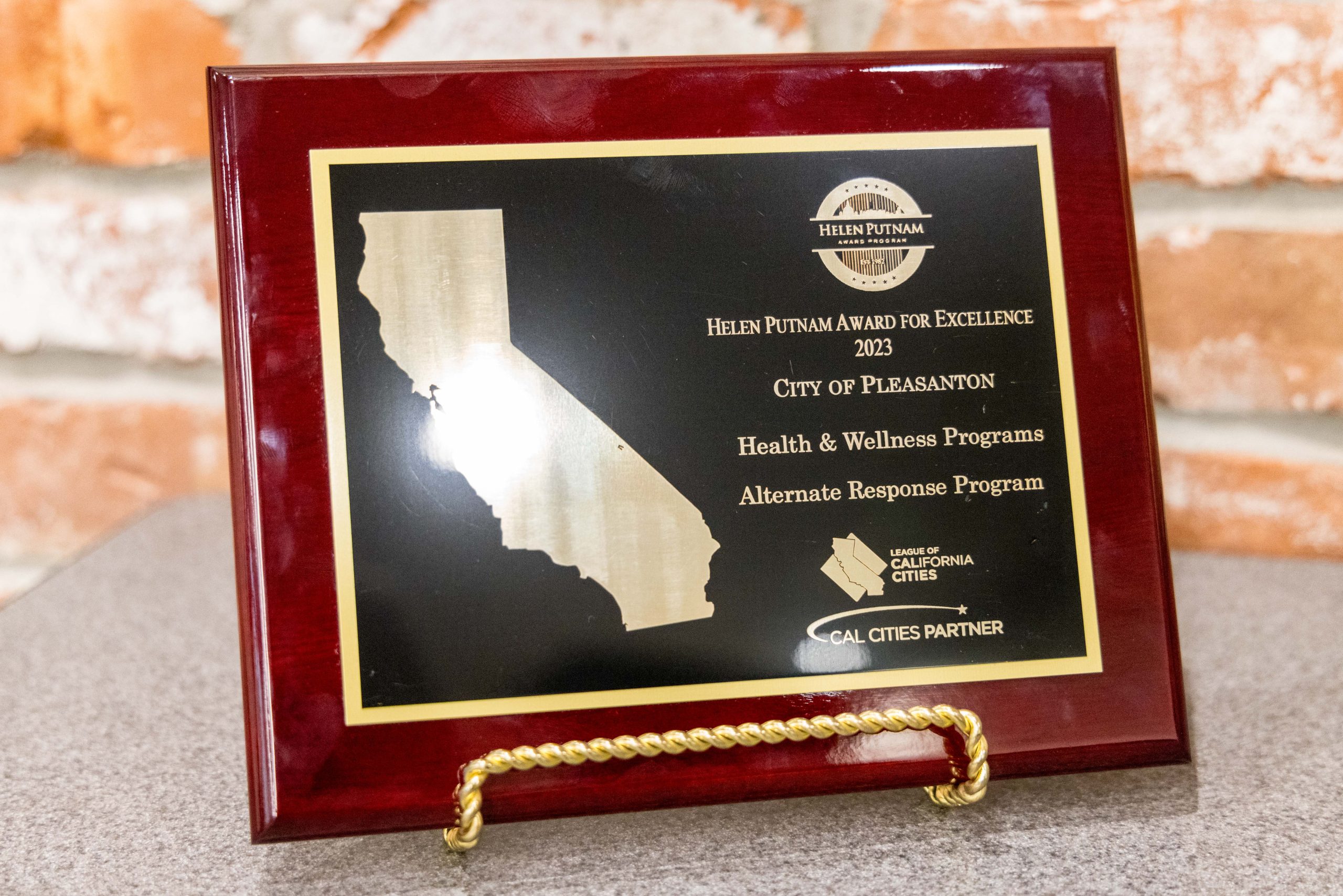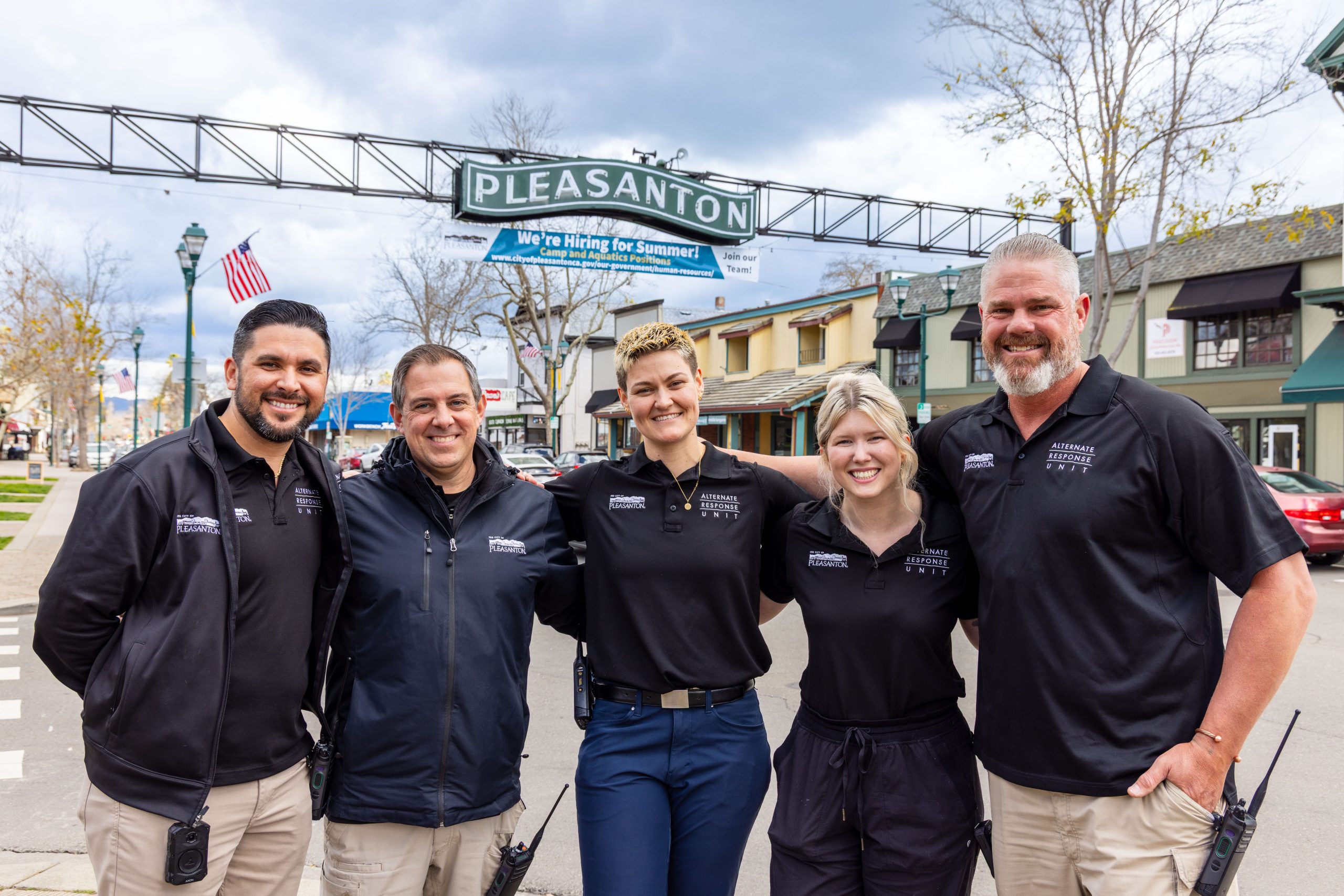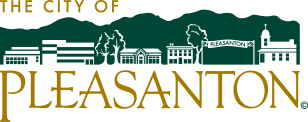- Police
- Join our Team
- Department Overview
- Policies & Dashboards
- Animal Services
- Community Advisory Board
- Crime Mapping & Blotter
- Crime Prevention
- File a Report
- News & Publications
- Records & Dispatch
- Permits, Forms & Fees
- CCW Request
- Community Outreach & Volunteer Opportunities
- Mental Health & Homeless Outreach
- Traffic Safety
- Exceptional Needs Registry
- FAQs
- Contact Us
Mental Health & Homeless Outreach
The Alternate Response Unit (ARU) pairs mental health clinicians with non-uniformed officers trained in crisis intervention and de-escalation to respond to mental health crises and homeless-related calls throughout the community. Our mission is to provide appropriate treatment resources to individuals experiencing mental health crises and to provide resources and referrals for those experiencing homelessness. We focus on connecting individuals and their families to long-term care and solutions.


Mental Health
ARU provides a wide variety of services related to mental health, including:
- Perform risk assessments for individuals who may be a danger to themselves, a danger to others, or gravely disabled due to a mental health condition.
- Provide crisis intervention, de-escalation, support, outside referrals and resource connection for individuals in need.
- Seek to connect individuals in crisis to the appropriate level of care and determine next steps.
- Initiate psychiatric hospitalization when appropriate or necessary for the individual’s wellbeing.
- Provide follow-up support on a limited basis to encourage positive outcomes and ongoing engagement in care.
- Offer resources and guidance to families of those experiencing severe mental illness.
Homeless Outreach
Homelessness is a growing concern in many cities across California. It is important to recognize that homelessness, in and of itself, is not a crime, however we understand the potential health, safety and environmental impacts of homelessness within our community. The Alternate Response Unit (ARU) seeks to work directly with unhoused individuals within the Pleasanton community to offer resources, mitigate barriers, and improve quality of life. People experiencing homelessness face numerous challenges, including lack of stable housing, access to healthcare, and employment opportunities.
To address the needs of both our unhoused residents and our community, we work towards creating long-term solutions with help from our community-based organizations. These solutions take time. ARU connects unhoused individuals to a variety of resources and services, including:
- ABODE Services- Alameda County’s Tri-Valley Housing Resource Center
- Axis Community Health- Affordable and accessible healthcare services
- Bay Area Community Health- Case management, medical services, specialty referrals
- CityServe of the Tri-Valley- Care coordination and individualized support
- Open Heart Kitchen- Emergency shelter and daily meals
Mental Health
ARU provides a wide variety of services related to mental health, including:
- Perform risk assessments for individuals who may be a danger to themselves, a danger to others, or gravely disabled due to a mental health condition.
- Provide crisis intervention, de-escalation, support, outside referrals and resource connection for individuals in need.
- Seek to connect individuals in crisis to the appropriate level of care and determine next steps.
- Initiate psychiatric hospitalization when appropriate or necessary for the individual’s wellbeing.
- Provide follow-up support on a limited basis to encourage positive outcomes and ongoing engagement in care.
- Offer resources and guidance to families of those experiencing severe mental illness.
Homeless Outreach
Homelessness is a growing concern in many cities across California. It is important to recognize that homelessness, in and of itself, is not a crime, however we understand the potential health, safety and environmental impacts of homelessness within our community. The Alternate Response Unit (ARU) seeks to work directly with unhoused individuals within the Pleasanton community to offer resources, mitigate barriers, and improve quality of life. People experiencing homelessness face numerous challenges, including lack of stable housing, access to healthcare, and employment opportunities.
To address the needs of both our unhoused residents and our community, we work towards creating long-term solutions with help from our community-based organizations. These solutions take time. ARU connects unhoused individuals to a variety of resources and services, including:
- ABODE Services- Alameda County’s Tri-Valley Housing Resource Center
- Axis Community Health- Affordable and accessible healthcare services
- Bay Area Community Health- Case management, medical services, specialty referrals
- CityServe of the Tri-Valley- Care coordination and individualized support
- Open Heart Kitchen- Emergency shelter and daily meals
FAQs
What hours is ARU available?
Currently, ARU is available Monday 7am-5pm, Tuesday-Thursday 7am-8pm, Friday 10am-8pm.
How do I know if someone is having a mental health crisis?
Mental illnesses do not all look the same. Symptoms that are of immediate concern include: suicidal thoughts or statements, self-harm, threats to others, hallucinations, and failing to provide for basic needs due to a mental health condition. In an emergency, call 911. For immediate counseling support, call/text the Suicide and Crisis Lifeline at 988. For an in-person response and further psychiatric evaluation, please call PPD non-emergency at (925) 931-5100 and ask to speak with ARU.
What do I do if a loved one is experiencing a mental health crisis outside of ARU hours?
If it’s a life-threatening emergency, immediately call 911. For counseling support, call/text the Suicide and Crisis Lifeline at 988. Otherwise, call the PPD non-emergency line at (925) 931-5100 and a PPD officer can assist you. PPD officers are trained in crisis intervention and de-escalation.
What does the Supreme Court’s decision in Grants Pass v. Johnson (2024) mean for our community?
There is a common misconception that this ruling has banned homelessness. In fact, this ruling means that communities are now able to enforce anti-camping ordinances. ARU will continue to focus on working with unhoused individuals to provide long-term solutions and stabilization.
Do officers receive Crisis Intervention Training?
Call PPD non-emergency at (925) 931-5100 and ask to speak with ARU.
I see an unhoused individual drinking or using drugs in public, what can I do?
In an emergency, call 911. Otherwise, call PPD non-emergency at (925) 931-5100.
What can I do about an unhoused individual on my private property?
Existing trespassing laws may apply if someone is refusing to leave your property. Contact the police department for assistance.
How can I help the unhoused community?
Volunteering or donating to local community organizations is a great way to help. We advise against providing cash directly to the unhoused, however direct donations of food, clothing, or personal itemscan be appropriate.
